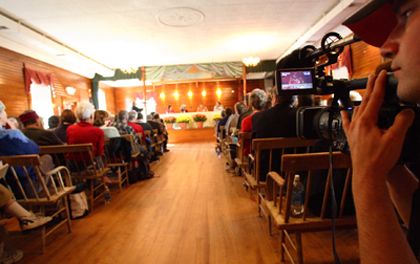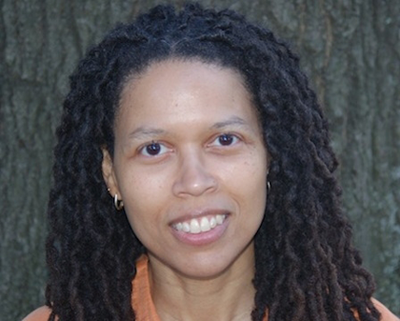Evie Shockley on Audience
“There are multiple different audiences overlapping, adjacent, divergent,” she told us in her talk at AROHO. As you are writing, she said, it can help to “think of your best audience.” On the other hand, she said, you might also think of someone who you believe would not be receptive to your work and address that audience in the crafting of your poem to bring in, and respond to, different perspectives. You can use the audience you imagine as you write to open up new possibilities for a poem.
As she was crafting one poem, she said, she considered how part of her audience would appreciate an experimental form but might not be interested in controversial content, while another part might be drawn to her content but perhaps put off by an experimental form; by engaging with multiple and diverse audience perspectives as she wrote, she pushed against the boundaries of form and content to shape a new kind of poem.Many of her poems are meant to be spoken, some parts to be sung—she has a beautiful voice—and she reminded us that our audience will not always be readers. Sometimes, she said, they are listeners and viewers who hear and see us read in person or in recordings posted online. “Can we design our poems so that listening is an integral part?” she asked. At this link you can hear her read and sing poems from her chapbooks and from her first collection, a half-red sea.
In this video she reads from her most recent collection, the new black, at the Painted Word Poetry Series, following a brief introduction by Major Jackson at University of Vermont – Fleming Museum, February 29, 2012 (36 min., 40 seconds).
Painted Word Poetry Series – Evie Shockley from Zach Despart on Vimeo.
“An audience may not have a background for your work,” she said, and advised us to consider how we can help readers and listeners access our work, for instance, by using an epigraph or endnotes to provide context for a poem. She also told us that “audience is not synonymous with market. Don’t think of your audience as a source of income. Audience is broader than market. Develop a readership and a listenership. Publish first in journals, not only print journals, but also online journals, which can be particularly effective forums for circulating poetry.”
- Evie Shockley discusses writing about race in poetry, as part of a Poetry and Race Roundtable, here and here, in Evening Will Come.
- In this Poets.org interview, Evie Shockley talks about how she makes poems.
- Read “Shifting the (Im)balance: Race and the Poetry Canon,” Evie Shockley’s review of The Penguin Anthology of Twentieth-Century American Poetry, published in 2011 and edited by Rita Dove, in Boston Review. Her analysis is fascinating, well-considered, clear, and compelling.
- Learn more about Evie Shockley at the Poetry Foundation.
Read a brief bio of Evie Shockley and her quote about audience in this Quote of the Week post.




I so appreciate this distillation of what Evie had to offer particularly the poets at the retreat. I loved the way she taught us to think about listeners, audience, and the richness to be had in facing down one’s fear of one’s least friendliest audience. I look forward to blogging this link forward. Thanks Barbara.
“I will give you what you have given me.” So wonderful to hear this since I didn’t go to the retreat. Thank you, Barbara, for posting something so intrinsically essential.
Glad you enjoyed this post, Sandra and Tania. I had a lot of fun learning more about Evie Shockley’s work.